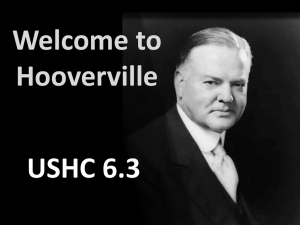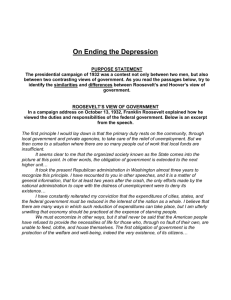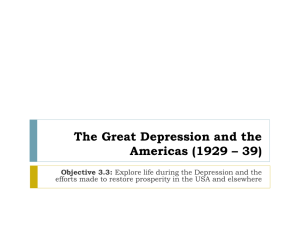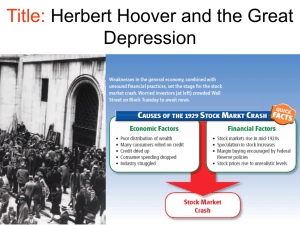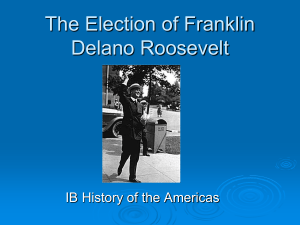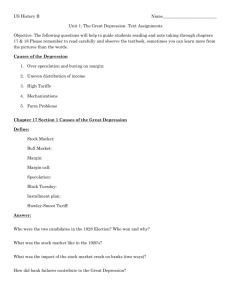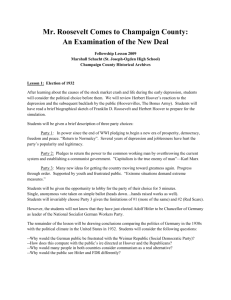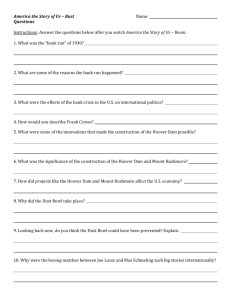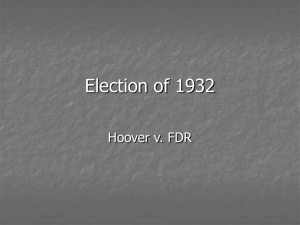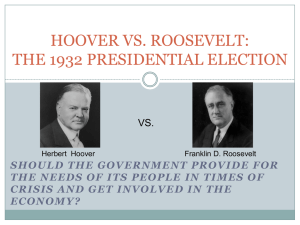The 1932 Presidential Election Results
advertisement
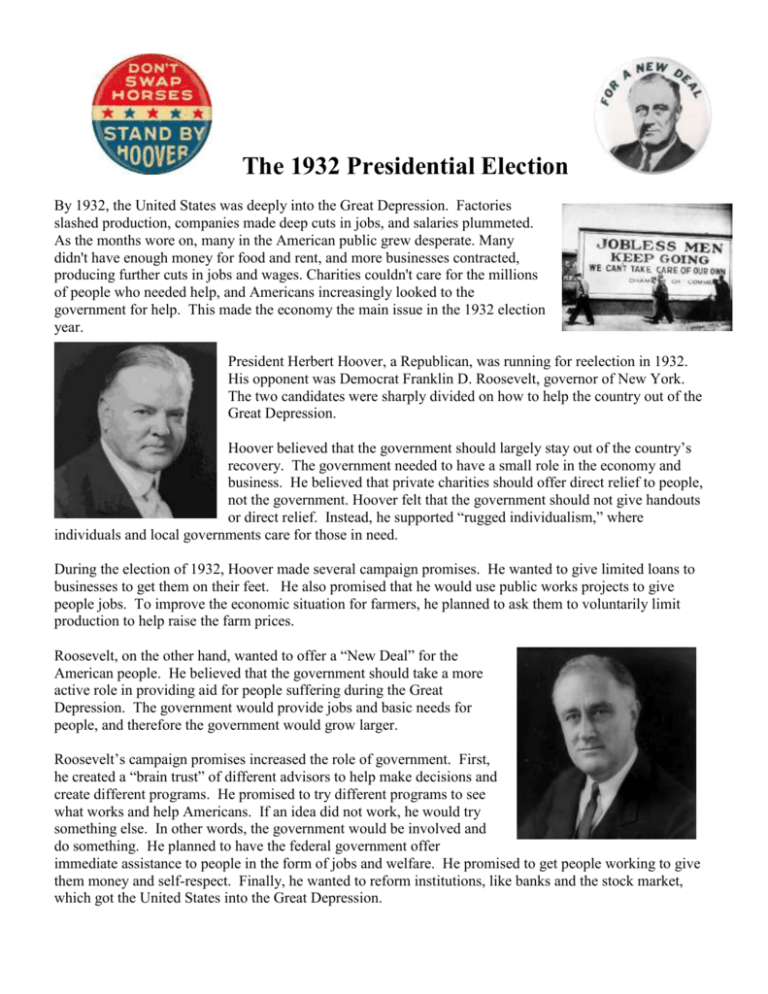
The 1932 Presidential Election By 1932, the United States was deeply into the Great Depression. Factories slashed production, companies made deep cuts in jobs, and salaries plummeted. As the months wore on, many in the American public grew desperate. Many didn't have enough money for food and rent, and more businesses contracted, producing further cuts in jobs and wages. Charities couldn't care for the millions of people who needed help, and Americans increasingly looked to the government for help. This made the economy the main issue in the 1932 election year. President Herbert Hoover, a Republican, was running for reelection in 1932. His opponent was Democrat Franklin D. Roosevelt, governor of New York. The two candidates were sharply divided on how to help the country out of the Great Depression. Hoover believed that the government should largely stay out of the country’s recovery. The government needed to have a small role in the economy and business. He believed that private charities should offer direct relief to people, not the government. Hoover felt that the government should not give handouts or direct relief. Instead, he supported “rugged individualism,” where individuals and local governments care for those in need. During the election of 1932, Hoover made several campaign promises. He wanted to give limited loans to businesses to get them on their feet. He also promised that he would use public works projects to give people jobs. To improve the economic situation for farmers, he planned to ask them to voluntarily limit production to help raise the farm prices. Roosevelt, on the other hand, wanted to offer a “New Deal” for the American people. He believed that the government should take a more active role in providing aid for people suffering during the Great Depression. The government would provide jobs and basic needs for people, and therefore the government would grow larger. Roosevelt’s campaign promises increased the role of government. First, he created a “brain trust” of different advisors to help make decisions and create different programs. He promised to try different programs to see what works and help Americans. If an idea did not work, he would try something else. In other words, the government would be involved and do something. He planned to have the federal government offer immediate assistance to people in the form of jobs and welfare. He promised to get people working to give them money and self-respect. Finally, he wanted to reform institutions, like banks and the stock market, which got the United States into the Great Depression. The 1932 Presidential Election Results Franklin D. Roosevelt won the 1932 election in a landslide with 22.8 million votes to Hoover's 15.7 million. Roosevelt carried 42 states to Hoover's six. Journalist William Allen White said FDR's victory showed "a firm desire on the part of the American people to use government as an agency for human welfare." The electorate had, in effect, taken nearly 150 years of tradition upholding limited government and, in their anxiety and anger, thrown it out the window. In his inaugural address, carried to millions on the radio, the new president said, "This great nation will endure as it has endured, will revive and will prosper. So, first of all, let me assert my firm belief that the only thing we have to fear is fear itself—nameless, unreasoning, unjustified terror, which paralyzes needed efforts to convert retreat into advance." His prescription was clear and heartening: "This nation asks for action, and action now. Our greatest primary task is to put people to work. I am prepared under my constitutional duty to recommend the measures that a stricken nation in the midst of a stricken world may require." 1932 Stats and Pictures Unemployment rises to 24.1%. (13 million Americans) Stocks have lost 80 percent of their value. 10,000 banks have failed since 1929. (40 % of all banks before the stock market crash) International trade has fallen by two-thirds since 1929. Foreclosures • http://www.livinghistoryfarm.org/farminginthe30s/money_09.html (foreclosure and farms) Discussion? 1. Introduction Why did people criticize Hoover and his administration’s response to the Great Depression? Why was Roosevelt so popular with Americans? 2. Source Study Strengths of Hoover’s campaign? Weaknesses? Strengths of the Roosevelt’s campaign? Weaknesses? 3. End Analyze: Why did Hoover loose the election? Analyze and Justify: “The most important reason why Hoover lost the 1932 Presidential election was his failure to do anything to help America out of the depression.” Agree or Disagree? Defend your position.
